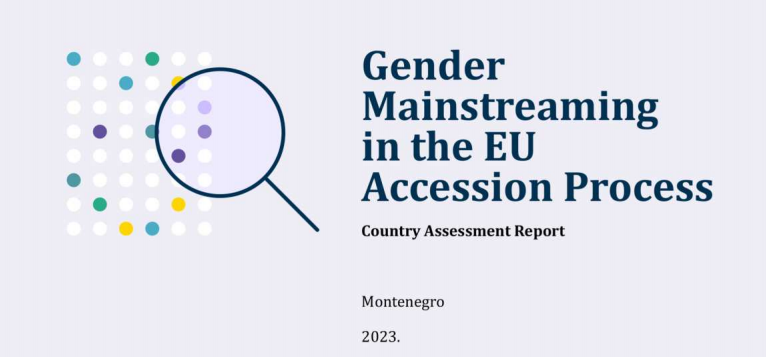457Views

Gender Mainstreaming in the EU Accession Process
More than ten years since starting the negotiations, Montenegro still has 30 chapters opened with no possibility to provisionally close any, at least until the temporary benchmarks for the rule of law cluster (Chapter 23: Justice and fundamental rights and Chapter 24: Justice, freedom and security) are met. Although action plans for these expired in 2018 and were followed by adopting “mini action plans”, country continued implementation of the key reform agenda without concrete measures, through cross-cutting and hasty laws. Closing benchmarks are still not delivered to Montenegro, beside the fact that those were officially asked for. Instead of accelerating the EU related reform process, as it has declared in its top priority agenda, so called Minority Government elected on 28 April 2022, led the country into even deeper political and institutional crisis. European Commission’s assessment that Montenegro “lost its focus on key EU reforms, especially in the rule of law” did not, consequently, came as surprise. As a result, human rights and gender equality portfolio were put aside. Official conclusion is that gender equality policy in Montenegro is not sufficiently successful.
Short-term appointments of officials, arising from shifts of three governments in two years, left institutions without institutional memory and acquired knowledge in integration processes6. These transformations also introduced restructuring of negotiation structure. Office for European Integrations, previously established within Prime-minister’s cabinet, was institutionalised into the Ministry for European Affairs while the newly appointed minister took over the negotiation process. The position of NIPAC was separated from the Chief Negotiator’s mandate and filled accordingly. Collegium for negotiations and Council for the rule of law were re-established.
It is the EU Delegation in Montenegro together with the international stakeholders (EC, OSCE, UNHCR) that appeared as the most important advocacy channel, through which WCSO’s addressed latest developments on national level asking for more robust response and pressure on the Government.
The following findings are result of the monitoring research Women’s Rights Centre conducted second year in a row, on the basis of joint methodology developed for this specific purpose by partner organisations. Methodology includes 45 indicators designed in accordance with EU Gender Action Plan III (GAP III) and the revised methodology for EU enlargement. The aim is to measure the level and possible trends in gender-mainstreaming in the EU integration processes led by the relevant government bodies and supported by the EU Delegation in Montenegro.
The methodology used to compile the report includes both primary and secondary data sources. In particular, interviews with key informants were carried out as well as content analysis, and review of publicly available documents. The presented findings provide valuable qualitative and quantitative data source that can be used for further comparative analysis and show more precisely the extent of inclusiveness and mainstreaming of the EU related reform processes.
